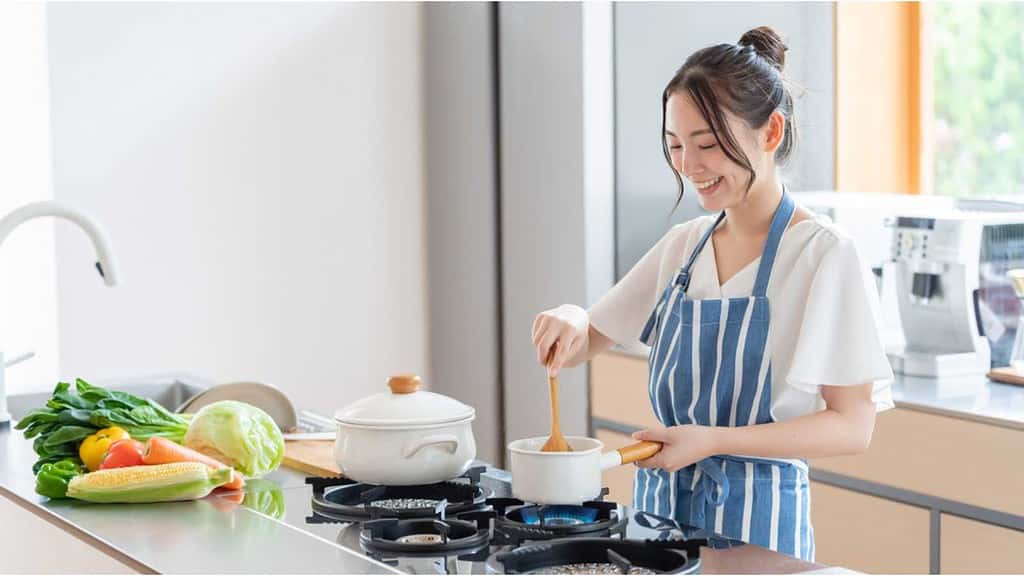Cooking is an essential skill for anybody, especially younger people with less disposable income, and never more so than for parents with many mouths to feed. With the youngest demographic (ages 20-29) partial to fast food more than ever and the cost of takeout rising quickly, there has never been a better time to learn how to cook.

A cooking enthusiast is asking for tips from the online foodie community. If you are in charge of feeding yourself or a household like me, here are some popular kitchen tips for beginners.
1. Use Quality Knives
This is the first thing any budding chef must have is a large chef's knife or Santoku knife for slicing through tougher meat cuts and the fast chopping of vegetables. Following this is a bread knife, a utility knife, and a pairing knife.
2. Preparation, Preparation, Preparation!
The better prepared you are before the cooking proceeds, the less stress and time you will accumulate. One happy chef explains how they "have everything in little prep bowls" as an antidote to pre-dinner anxiety.
3. Taste as You Go
While seasoned cooks understand precisely how a sauce needs to be, those learning must keep refining their recipes until they are perfect. "Taste everything as you cook and do it often," is the opinion of a seasoned veteran — pun intended.
4. Be Garlic Aware!
Some recipes demand you fry onion and garlic together, which any experienced cook will tell you is not a great idea — unless you want onions with a bite. The onions for most recipes must be soft before garlic joins them. Otherwise, you get burnt garlic. Nobody likes burnt garlic. Also: always add more garlic than the recipe says.
5. Start Small
If you are new to cooking, begin your education with simple recipes. Start with simple processes: for example, frying an egg, making a simple marinara sauce, or roasting a chicken. A helpful tip in the discussion is to get "consistent knife practice from chopping vegetables in different ways based on the meal's needs." Sound advice.
6. Follow Recipes
There is more leeway with cooking recipes; ingredients can be omitted or tweaked and still turn out well. However, baking is another story. One food lover concedes that "If you're cooking, recipes are more like guidelines. If you're baking, a recipe is a doctrine."
7. Brown Your Meat Separately
Nothing fills a meat lover with more rage than seeing a prime cut getting less respect than it deserves. When making a stew, brown the meat off first, remove it, then saute the onions and vegetables in the meat juices before adding the stock. You will thank me later!
8. Knives Out
Knives are important to food preparation and are easy to find in stores. Have you ever tried slicing an onion with a blunt knife? It is horrid. Knife sharpeners are easy to find, though one purist says: "Steel is for honing; stone is for sharpening. Use both!"
9. Ski Goggles
Hear me out! Onions are the bane of any kitchen, with professional chefs sometimes responsible for peeling hundreds of pounds of onions per week. Another personal tip for free: Invest in a ski mask. You can get through many onions without shedding a single tear — albeit looking rather silly.
10. Dollar Store Cookware
Without sounding too elitist: avoid the cheapest cooking utensils and pans by saving a few bucks and investing in decent pans. This is echoed by several people, most of whom offer a constructive alternative, with one saying how "thrift stores can be a great place to find decent cookware for not too much."
Learn more about what useless appliances you don't need in your kitchen.
This thread inspired this post.

Tell Us What You Think